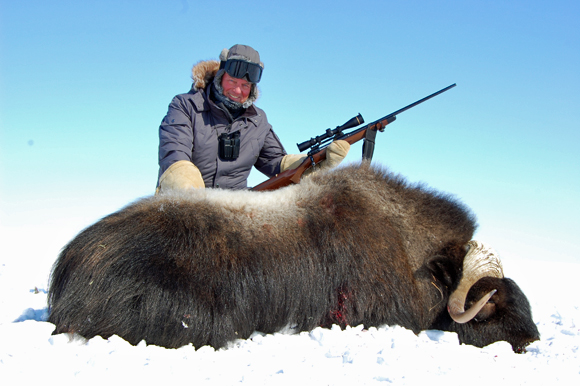
Jim Yuel
There are some common threads running through the families that hunt and fish with Webber’s Lodges.
Not only do they cherish the outdoors and understand the true value of nature when it comes to raising a family, they’re also strong supporters of conservation organizations. And many of the patriarchs who bring their families on trips with us are also self-made men with strong traditional family values similar to those of our own.
Jim Yuel was recently up with us for a musk ox hunt in Nunavut, and he brought along his son Greg and grandson Yuri. The trip was organized by his hunting buddies Joe Moore and Gord Banda, who were also on the hunt.
“Joe and Gordie and I have fished together for years,” said Jim. “We’ve been to Alaska and a lot of different places. Joe had arranged a caribou hunt with Webber’s Lodges about four years ago. The three of us went up and I took my grandson with me on that hunt as well. He was 18 or 19. We each got our caribou.”
Now 74 and soon to be 75, Jim Yuel has been on quite a few hunting and fishing adventures over the years, but he’s certainly earned his opportunities.
He grew up on a farm in Manitoba, quit a good job and started his own business selling water treatment chemicals to small towns on the prairies. That was 40 years ago. What was then known as Prairie Industrial Chemicals is now known as the multi-million dollar PIC Investment Group Inc.
Has he retired yet?
“I guess so,” he laughed. “But I spent all day today in a strategy meeting with one of our companies. Ten years ago I turned the presidency of the company over to my son.”
Jim plays more of an advisory role in the company these days. Greg is now the CEO of PIC Investment Group, but despite the hectic lifestyle of running a large company, he still makes time for hunting and fishing with his father and son.
“Greg loves to go along on the hunt,” said Jim. “He loves the camaraderie. He’s a little more compassionate than I am, although as I get older I find I also have more compassion for the animals. Yuri is 23 and he absolutely loves hunting, bird hunting, big game hunting, fishing and all of the outdoor activities.”
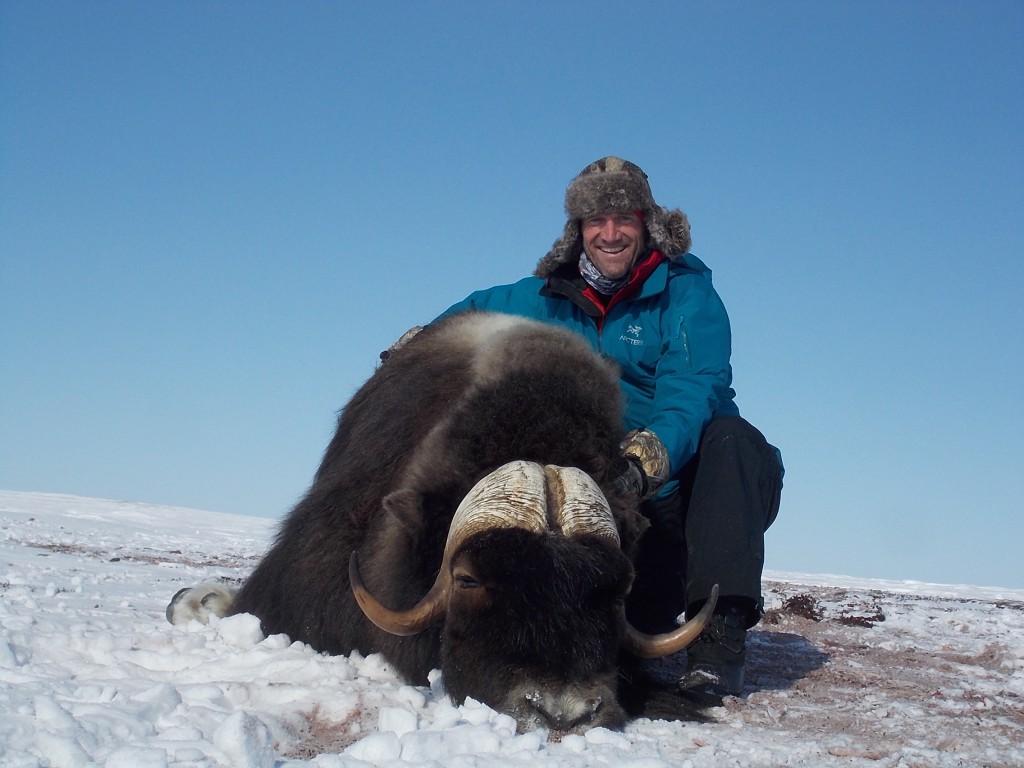
Greg Yuel
The group flew directly from Saskatoon to Baker Lake with their own aircraft. The hunt was supposed to last until Saturday but everyone had tagged out by Thursday, so they used the Friday to do their registering with conservation officers, look after the hides and the meat, and left a day early.
“It is absolutely excellent meat,” said Jim. “It’s obviously a little chewy just because it’s fresh and quickly frozen, not given the opportunity to hang or properly cure like you would normally do, but the taste is phenomenal.”
“Russ (Mehling, Webber’s Lodges General Manager) was great,” said Jim. “He really looked after us. We had a couple of Inuit guides. They were really good. Really knew their stuff.”
“Really good outfitter and local guides,” added Greg. “That was really nice and certainly required in that hunt. Local guides are important and I understand why. They were very professional guides first and local guides secondarily. They took a huge amount of pride in their guiding ability and they were extremely respectful of the wildlife. I was quite impressed with that.
“And it was a tricky hunt, as you would know. The identification of a musk ox from 200 yards away is pretty near impossible. We had lots of sights on individual animals and excellent communication with the guides. ‘Second from the right? Is it a good shot?’ Looking through the binoculars, the guide would say nope or yep. It’s impossible to tell a bull from a cow but they knew. I never would have guessed it would be that hard.
“They would look at the distance between the horn, the amount of material between the horn, and the fullness of the horn. Is the horn bushy or is it flat? Talk about hard. Females have an inch wide gap between the horns, while the male’s come almost together. And the female’s horns are broader and flatter. The male’s horns are stouter and bushier, so that they can bash each other. How do you tell that through a set of binoculars 200 yards away, when their head has been used to scratch the snow and dirt back from the lichen, which is a foot deep. Every animal has dirt and rocks and snow all over their foreheads.
“And you’re supposed to tell that there is a one inch difference between the horns from this one to that one? Are you looking at a cow? Are you looking at a bull? Are you looking at a calf? If you’ve got 20 animals, a lot of variety, then you can look at the big ones. That’s a female. That’s a male. But when you’ve got group of four animals? Good luck. They’re all the same size and look exactly the same. But the guides picked 100 percent accurate every time. And even though they said ‘Yes, take that one,’ when they approached the dead animal the first thing they’d do was pull the leg back and double check and make sure that was a good animal. Local guides, professional guides that are musk ox guides, are imperative.”
The weather was extremely cold for the second of two musk ox hunts according to Jim, but the group had anticipated well and dressed for it.
“We had the clothing for it,” said Jim. “There’s no question that if you had any bare skin exposed for a minute or two it was going to be frozen, but we were appropriately dressed. And the snow machines they provided were excellent, top of the line as far as I’m concerned, which was good because we covered up to 200 km in a day. There is only a few inches of snow there and it’s packed as hard as cement in ridges. So you need very, very good machines with great suspension to be able to take the pounding.”
All part of the adventure that Jim, Greg and Yuri thoroughly enjoyed. Greg is a lifelong hunter who started hunting with his Dad as a kid, but mostly went fishing. He’s now hunted caribou, moose, deer, elk, buffalo, musk ox and bears, the latter also with Dad, just to watch him.
“Dad is an expert bear hunter,” said Greg.
Jim has hunted Alaskan Brown Bear three times and has been going archery hunting for bear every spring for 40 years.
“I’ve seen thousands of bears,” said Jim. “But have actually shot only two with the bow. Not for lack of opportunity, it’s more about the hunt, about seeing the animals, viewing them, taking pictures, videoing, watching the personalities and reactions of different animals.”
Both Jim and Greg are supporters of multiple conservation charities including Ducks Unlimited, the Wild Sheep Foundation, the Saskatoon Wildlife Federation, the Saskatchewan Wildlife Foundation and more, and PIC Investment Group gives back to the community in five major areas that include disease research, youth development, municipal/provincial economic development, nature, and community quality of life, with multi-year contributions towards the Rick Hansen Institute, the Children’s Hospital Foundation of Saskatchewan, the Ducks Unlimited Chappell Marsh project and the Meewasin River Landing,
“The reality is the only people who really put any serious money towards conservation are hunters and fisherman,” said Jim. “Those people that run around protesting, they put almost no money towards true conservation.”
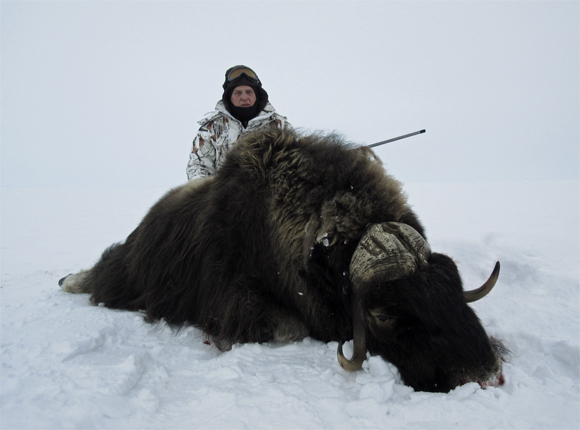
Joe Moore
“The musk ox hunt wasn’t about just going out and killing an animal. It was about the adventure, about the challenge, about the elements, to see a different part of the world, a different part of the country. To get up there to Nunavut at the end of April, when people are out golfing in Saskatoon, and have to put on gear that’s going to protect you against -40 temperatures and go on a skidoo for a couple 100 km to find a few musk ox. Over country that no matter which way you turn it all looks the same, and you’re riding with guys who are going through there like they were on city streets with signs. It’s a pretty amazing experience.”
While Greg and Yuri also loved the adventure, Greg was looking forward to this particular hunt for another reason.
“I traveled to Europe 4-6 times a year for a number of years to a business we own and we were flying over the Nunavut area specifically, and over the Hudson Bay through the Arctic, and Greenland. I always enjoyed seeing Canada from above, looking down, and wondering what the heck was down there, and how anything could live there. So I was really looking forward to being on the ground there. And it was super cool! An extremely fulfilling experience, I now understood what was down there and how something could live there. It was very gratifying in that regard and it was a really beautiful, a beautiful place to be. I loved the community and where we were at, and I definitely loved the animals. It was awesome.”
The hunting tradition will obviously continue in the Yuel family based on great memories of adventures past and present, but it’s even more likely that a fishing tradition has been passed on to Jim’s seven grandchildren, four in Calgary and three in Saskatoon.
“He takes all seven of them fishing every year,” said Greg. “At first he took them in groups of two or three, so for several years it was three trips per season. Then, when they got old enough, he started taking them all together on one trip. He’s been doing that forever. So really, my kids’ relationships with their cousins are due solely to my Dad taking them fishing each year. And they are great friends. My sister and I, we just don’t get together otherwise. And really, that’s thanks to Dad.”
“To me, it was important to do that,” said Jim. “It was important for me to spend time with my grand kids. Fishing and hunting and camping are something I’ve done since I was a child and I’ve taken a huge amount of joy in it. I realize that there are a lot of people who simply don’t have the ability to do that with their grand kids, but there are also a lot of them that do have the ability and just don’t do it.”
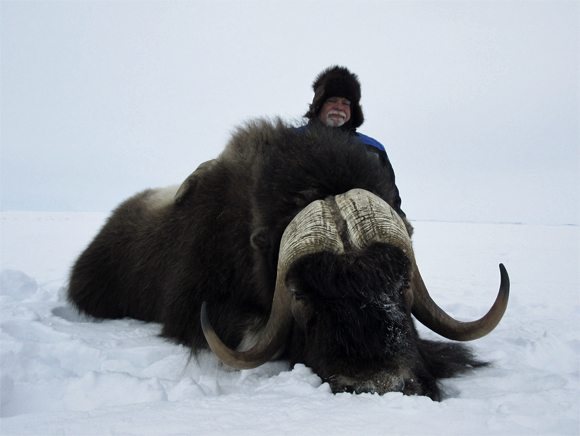
Gord Banda
Being outdoors together as a family has amazingly positive effects on relationships, and is highly valued by the Yuel family. The lost art of personally connecting with people has been ingrained in the Yuel youngsters. Beyond the obvious benefits, how important will the ability to actually connect with people be in the future — for jobs, for family, for future successes, and just good old-fashioned happiness?
“You know, people are different when they’re out together around the campfire or they’re sitting in a boat together,” said Jim. “They’re open and they’re honest and they’re up front and they talk. They share things. That doesn’t happen in almost any other venue. When they were young, preteens and early teens, yes they were excited about going and I thought it would wear off, but it’s not true. They’re just as excited looking forward to that trip now as they were when they were 10 years old. Now, when you get them all together they get laughing and joking with each other and they start sharing memories of previous trips. It’s just amazing to watch.
“Despite all the technology, whether it’s Facebook or Twitter, they’re not really connecting there. They’re anonymous. They’re throwing things out there. They’re reacting to responses. There’s no personal connection. In this case they’re really connecting. They’re remembering past experiences and relating to one another.
“It’s been great because I’ve got three grandchildren in Saskatoon and four in Calgary. I know numerous families where they have that kind of split and those grandchildren wouldn’t recognize each other if they met on the street. These ones, they’ve had that interaction every year for 10, 12, 15 years now. And it’s huge. It’s been tremendous as far as tying the family together, keeping them connected and keeping them informed on each other. And now, with email, these kids are emailing back and forth all the time, because they know each other. There’s no comparison via email if you’ve actually met the person you’re emailing.”
“In the outdoor environment everyone gets to learn how to do things for themselves,” said Greg. “They learn how simple things really are. You think of the outposts that the kids go on for fishing trips. They get dropped off at one of the Canadian adventure destinations, where there’s just the cabin, and the boats and the gas, frying pans and dishes, and that’s kind of it. You’re making all the fires, you’re cooking all the food, you’re killing the fish and skinning it and cooking it. Everything is really basic and it’s really simple. And that’s a good thing.”
As for the future? Jim Yuel goes to the gym three times a week and spends an hour with a personal trainer. He’s also got an understanding wife, Lisa, who says he should do what he wants, because he earned it. And you know he’s planning to do just that, especially with his grandkids.
“I want to be 76,” he laughed. “I’m just trying to take care of myself. There’s not a lot of fun in being old if you’re not healthy.”
More adventures to come.
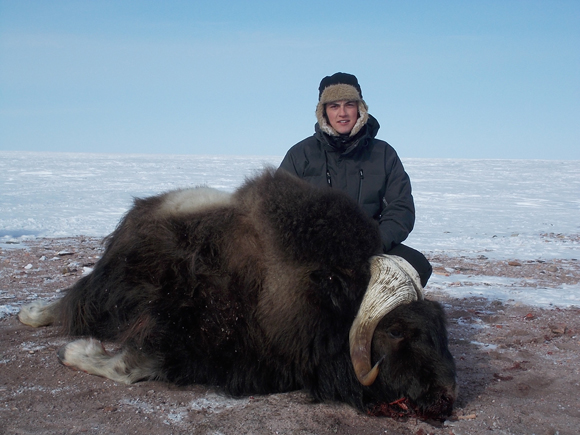
Yuri Yuel. The next generation.
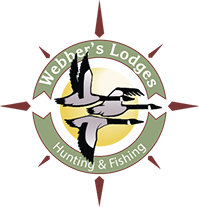
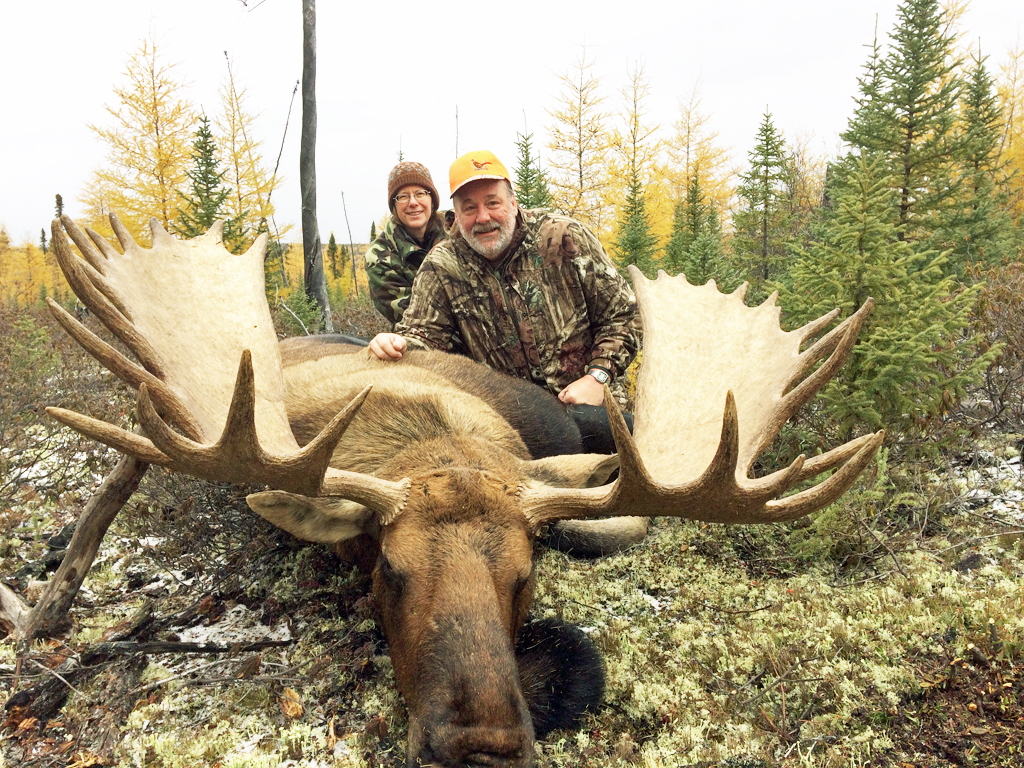




Leave A Comment